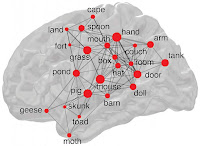
Forgetfulness Might Depend On Time of Day
MEMORY: Can’t remember something? Try waiting until later in the day. Researchers have identified a gene in mice that seems to influence memory recall at

MEMORY: Can’t remember something? Try waiting until later in the day. Researchers have identified a gene in mice that seems to influence memory recall at

PREVENTION: RESEARCHERS reviewed data from the Framingham Heart Study to determine the latest trends in Alzheimer’s dementia. What did they discover? Learn more.

VIDEO + ARTICLE: A study at UC San Francisco has found the odds of cognitive impairment are substantially higher for people with elevated depressive symptoms

RISK ASSESSMENT VIDEO + ARTICLE: A substantial proportion of brain changes might be due to risk factors that can be modified, according to a study

THE CORONA VIRUS: Around the world, dementia researchers are studying SARS-CoV-2 virus’ (the cause of COVID-19) long-term effects on the brain and nervous system. It

MEMORY: A new computer-model reveals fascinating insights into why we remember some words more easily than others. Can NIH researchers further develop it into memory

Ketone-rich diets increase the SIRT3 protein that protects neurons from death during the progression of Alzheimer’s disease. But how does it work? Find out more.

A safer Alzheimer’s treatment may be on the horizon — but families still have meaningful choices today.

The smallest act of kindness is worth more than The grandest intention. Oscar Wilde

The antidepressant drug citalopram, also sold under the brand names Celexa and Cipramil, significantly relieves agitation in Alzheimer’s. Learn about the benefits and side-effects.

Researchers in Florida find that robotic pet cats improve mood, behavior and cognition in older adults with mild to moderate dementia. Find out more.

Ketone-rich diets increase the SIRT3 protein that protects neurons from death during the progression of Alzheimer’s disease. But how does it work? Find out more.

Memory failing? New research shows you may need help, but not for dementia. Memory slips, stress and fatigue are growing in people with healthy memory.
No spam, only news and updates.


